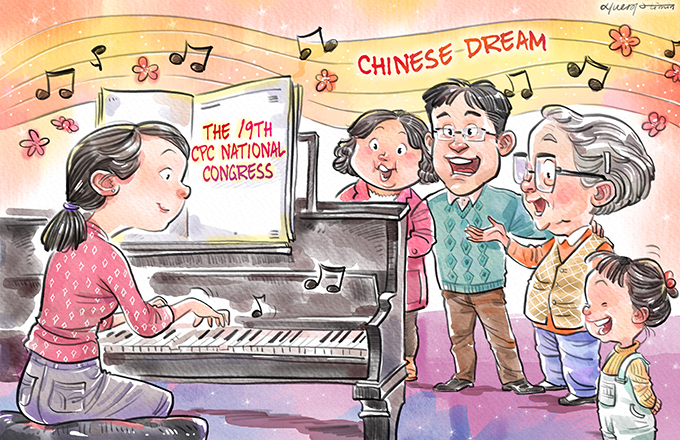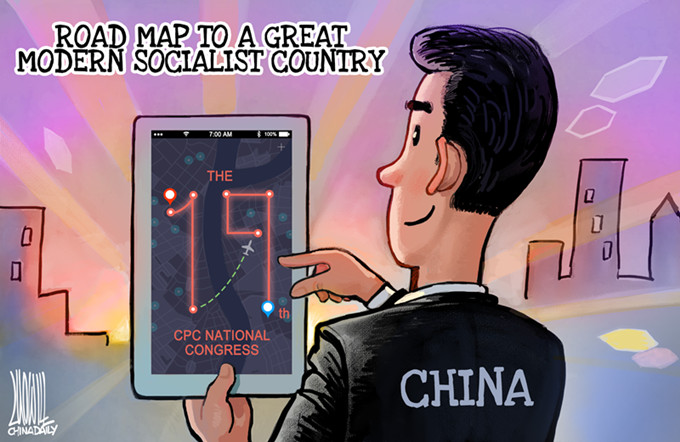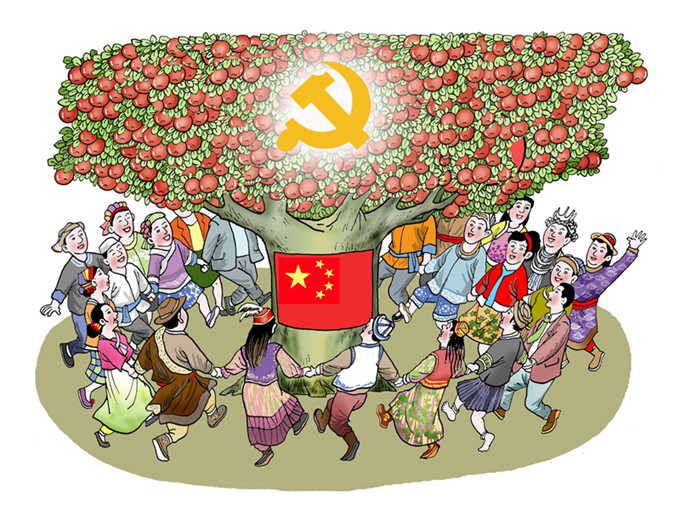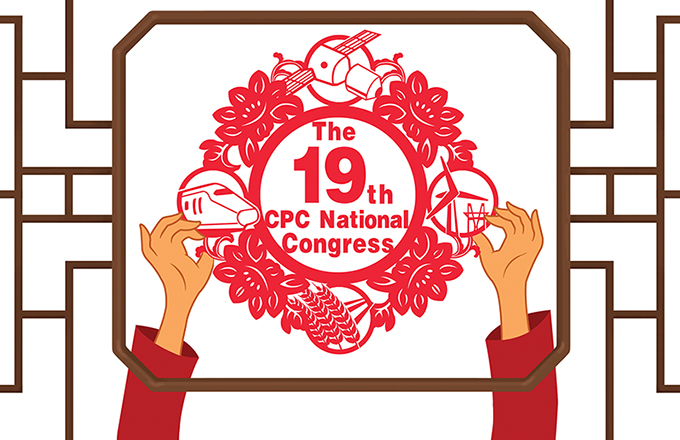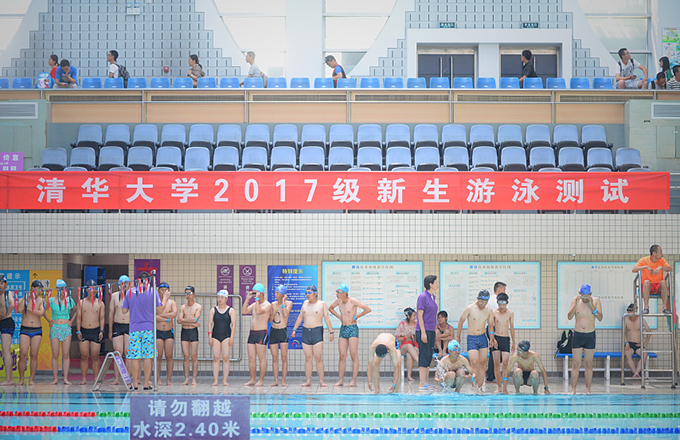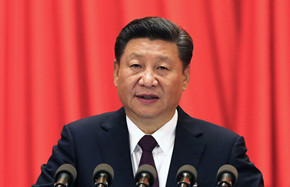EU has enough incentive to strengthen ties
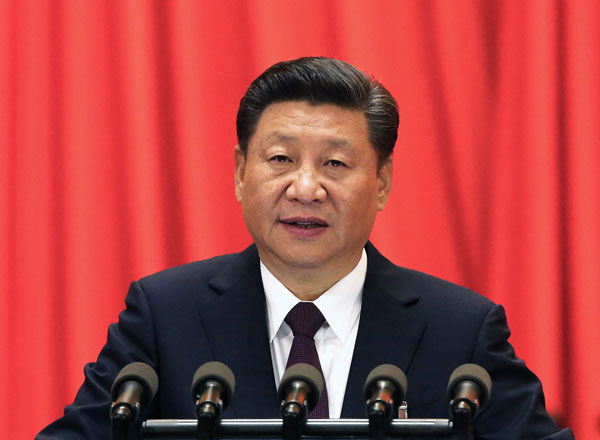 |
|
Xi Jinping delivers a report to the 19th CPC National Congress at the Great Hall of the People in Beijing, Oct 18, 2017. [Photo by Xu Jingxing/chinadaily.com.cn] |
Before the start of the 19th National Congress of the Communist Party of China, some European politicians, such as Luxembourg Prime Minister Xavier Bettel and former French prime minister Jean-Pierre Raffarin, told me that one typical strength of the Party leadership was its long-term vision of governance.
This is exactly what was reflected in General Secretary Xi Jinping's speech at the opening of the 19th National Congress on Oct 18. And one of the headlines in the Western media, "Xi Jinping's 2050 vision: A China that Stands Tall in the World", best describes the power of that governance message.
To give practical shape to that vision, Xi, as the core of the Party leadership, has proposed a two-step approach to develop China into a great modern socialist country after building a moderately prosperous society in an all-round way by 2020. From 2020 to 2035, China will make sure socialist modernization is basically realized, and in the next 15 years, it will strive to become a great modern socialist country that is "prosperous, strong, democratic, culturally advanced, harmonious and beautiful".
Surely, the vision and approach are a timely update of the three-step strategy of Deng Xiaoping in the 1980s for China's modernization. They are encouraging in that they could positively reshape the world's power structure.
In fact, one day after Xi delivered the speech, European Union leaders gathered in Brussels for their two-day "autumn summit". Although the EU leaders meet regularly under the framework of the European Council, which decides the bloc's political direction, an important outcome of last week's EU meeting was, to some extent, similar to Xi's 2050 vision as the EC unequivocally endorsed the "Leaders' Agenda" drafted by EC President Donald Tusk.
But in essence, the EU still seems obsessed with crisis management, as the aim of this concrete work is to prepare a guide for the bloc to negotiate the Brexit talks, and resolve the migration crisis, strengthen internal security, implement eurozone reforms and improve trade. Tusk's approach is praiseworthy, not least because he knows what should be high on his political agenda.
Still, Tusk can and should do more, especially as the world is still wondering what the future has in store for the EU and people in the EU have the right to know what the lives of their children and grandchildren be like.
The EU badly needs a blueprint, for example, to close the development gap between Western and Eastern Europe, because one of the most important principles of the bloc is to ensure people within the vast geographical boundary of the EU lead the same quality of life.
Xi has already made it clear in his speech that the Party's main mission is to resolve the contradiction between unbalanced and inadequate development and the people's ever-growing needs for a better life to ensure everybody leads a prosperous and beautiful life.
The next China-EU summit will be held in Beijing next year. And EU leaders would do good to study Xi's speech to understand where the Party gets its long-term vision from and whether it is, even partly, applicable to the EU, for that would give them more material to work for the success of the China-EU summit.
The EU leaders should study Xi's speech also to explore what opportunities China would offer once it evolves into a great modern socialist country by 2050, which could be a new and important incentive for further improving China-EU relations.
The author is deputy chief of China Daily European Bureau.
fujing@chinadaily.com.cn





